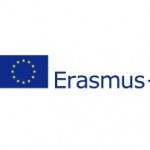Lesson cycle “understand your child's dependencies!” How to change thinking and behavior on dependencies?
The aim of the programme is to provide parents with additional knowledge of how to understand children at the age of transition when it becomes a teenager, providing parents with information on the development of young people, the role of different dependencies in it and the influence of parents, control boundaries and opportunities.
The lesson cycle includes six classes: theoretical exercises, practical exercises, day-to-day analysis.
The activities of the programme are intended in the following directions: educational lectures and discussions for parents, provision of information on dependencies and prevention thereof. The program will promote awareness and develop skills for parents to help their children in a single-generation group without aggressive behaviour, manage their behaviour, emotions without the use of intoxicating substances, divide their time between learning, free time and time at the computer, help understand the harmful effects of smoking, stop smoking and strengthen healthy lifestyles.
The programme will strengthen parents' skills to develop the self-assessment of young people and the ability to resist the pressures of peers, as well as to develop life skills and negative attitudes towards different dependencies. In addition, the efforts of parents to create an appropriate environment will be triggered so that young people choose a full and dependent lifestyle.
The programme was developed by: Ilze Kuhaļska, Sylvia Pranch, Ilona jabo.
Lesson 1 Welcome
Objective: To build mutual trust and insight into the group's overall experience and motivation to learn the programme
Tasks:
1) to become acquainted with and build trust relationships in the group
2) identify the needs and objectives of participants
3) Develop agenda and/or group rules
Duration of performance - 3 academic hours (3 x 45 min.)
Activities: Welcome, Groups, Discussion
Class 2 children and modern technologies
Objective: to introduce parents to the dangers of modern technologies
Tasks:
1) provide parents with information on modern dependencies
2) to help parents understand the causes of modern dependencies
3) advise parents on how to reduce children's dependence on modern technologies
Duration: 3 academic hours (3 x 45 min.)
Activities: discussion, lecture, presentation
Lesson 3 how to help your child not become dependent
Objective: To raise awareness of the strategies in which parents can influence their children's choices
Tasks:
1) to raise awareness of the reasons why children are attempting different addiction substances
2) advise parents how they can help their children not become dependent
3) encourage parents that the adolescent period is only a temporary phase in life that is passed through every parent
Duration: 3 academic hours (3 x 45 min.)
Activities: discussion, group work, feedback
Lesson 4 how important it is to teach a teenager to say “no”
Objective: to improve parental competencies in resolving situations of conflict and choice
Tasks:
1) seek solutions to teach adolescents to give up addiction and learn to understand personal responsibility for decisions taken.
2) to promote cognitive and observation skills of parents
3) advise parents
Duration: 3 academic hours (3 x 45 min.)
Activities: lecture, working groups, modelling and solving of situations, practical task
5 th lesson to talk to a teenager to hear
Objective:: familiarise parents with communication barriers, advise on optimising the interface
Tasks:
1) learning how people tend to make psychological pressures;
2) to promote awareness of the importance of personal responsibility in decision-making;
3) provide parents with methods to help them change thinking and behaviour in conflict situations.
Duration: 3 academic hours (3 x 45 min.)
Activities: lecture, working groups, situation modelling, discussion
Step 6 backward view, future view
Objective: to create feedback on what happened and to set targets for the future
Tasks:
1) discuss future scenarios
2) assess the relevance and usefulness of the information obtained in the activities
Duration: 3 academic hours (3 x 45 min.)
Activities: working groups, feedback
Project: “hug for the future”
No 2014-1-LV01-KA104-000218
